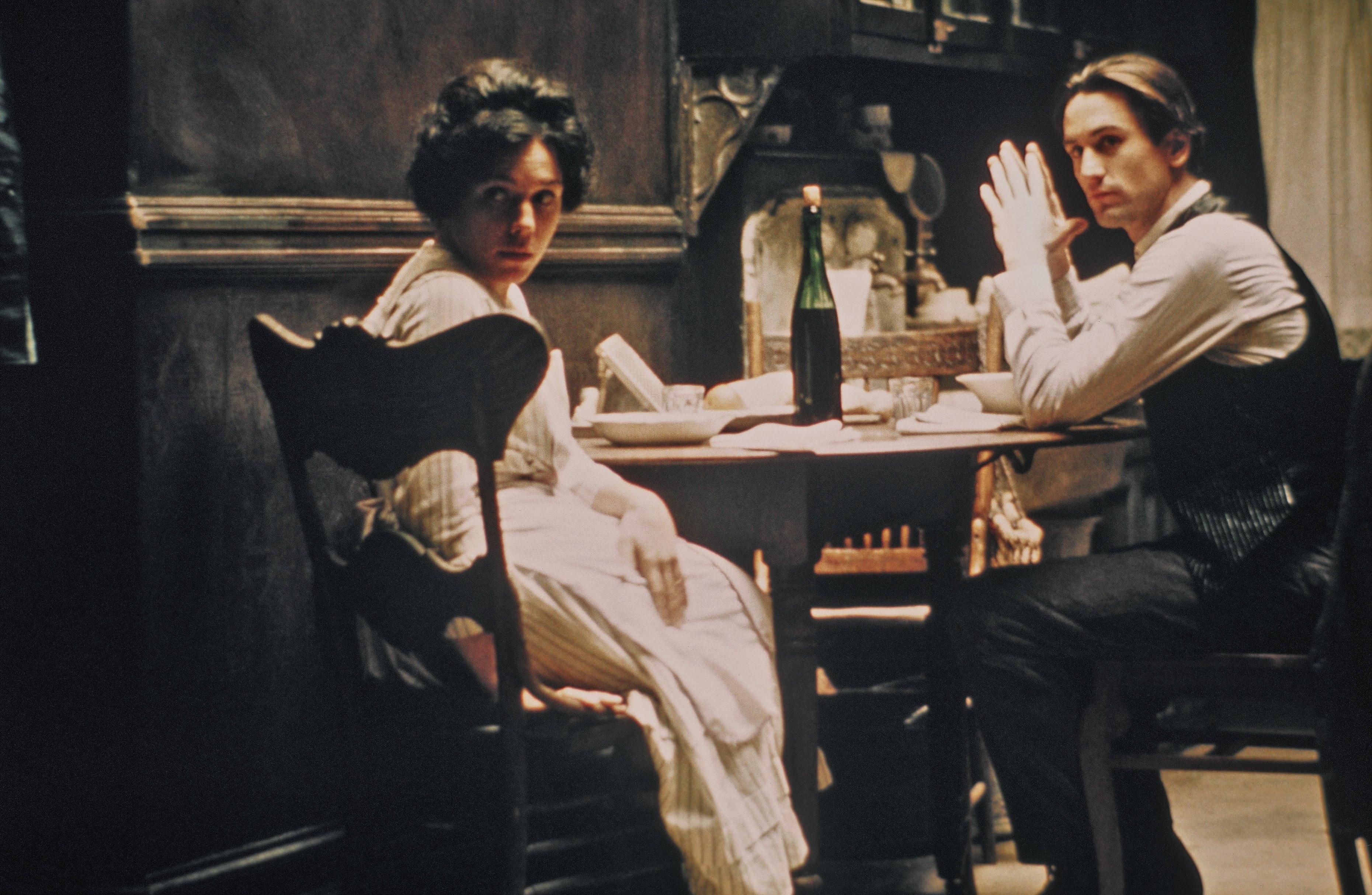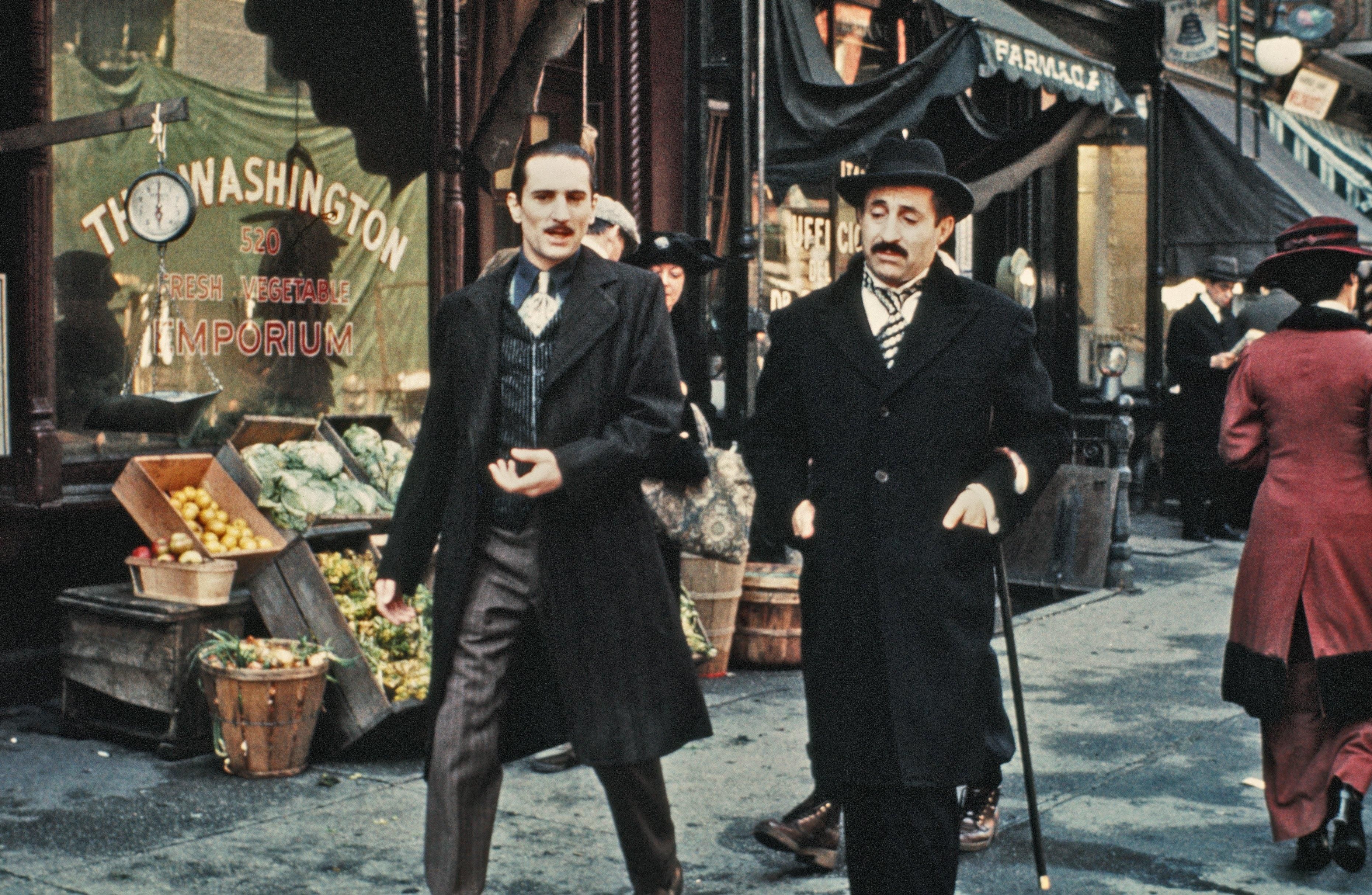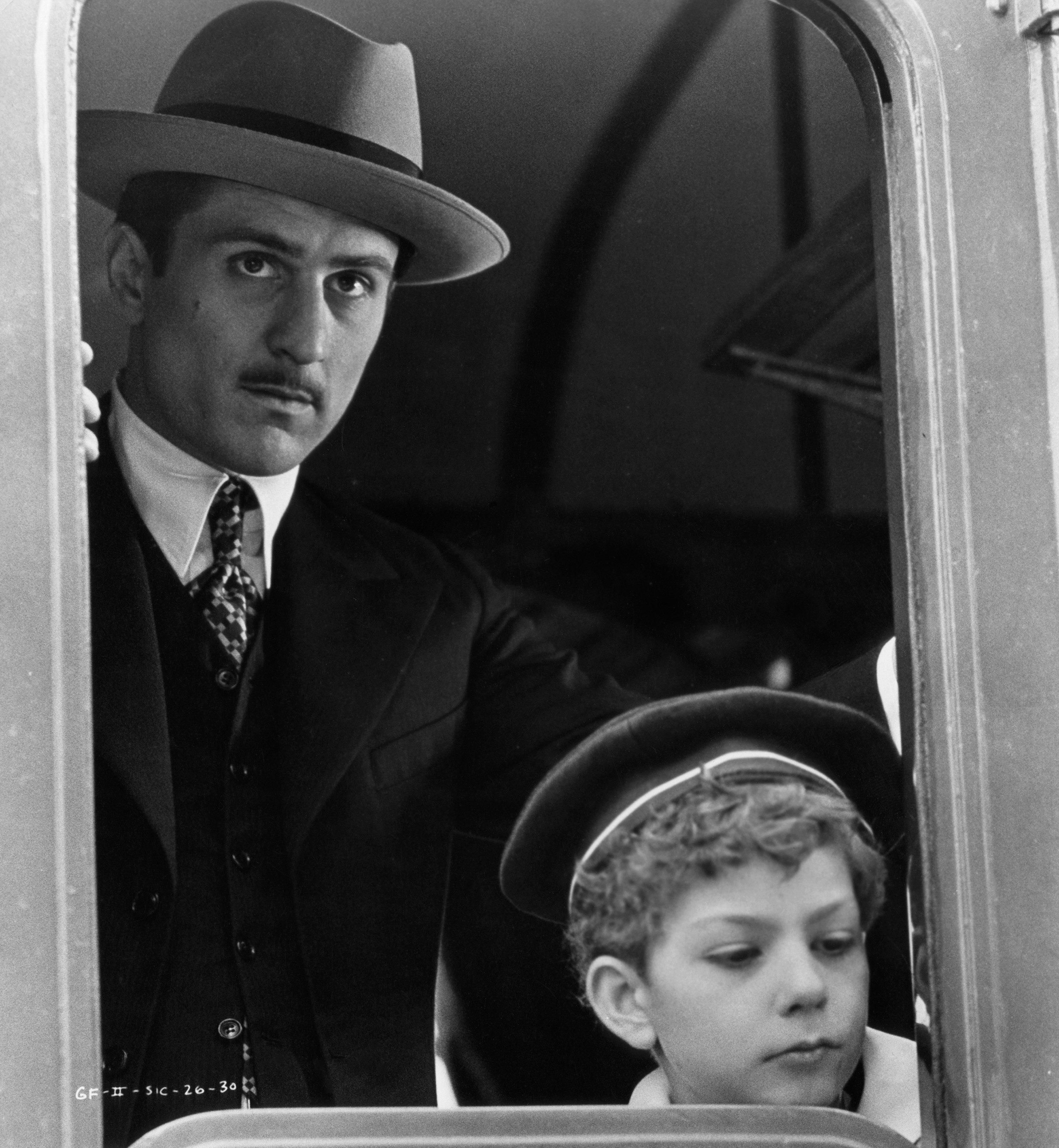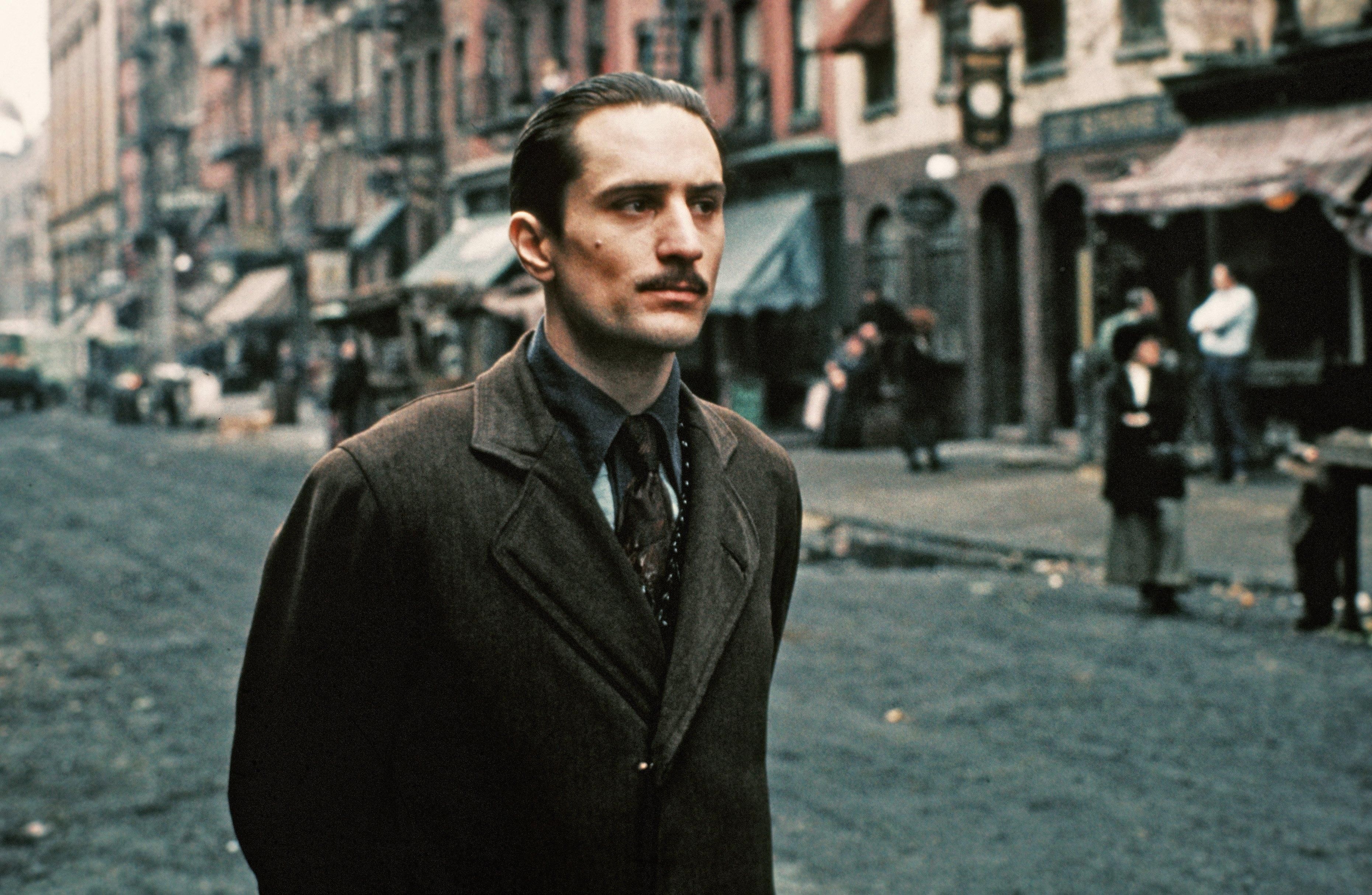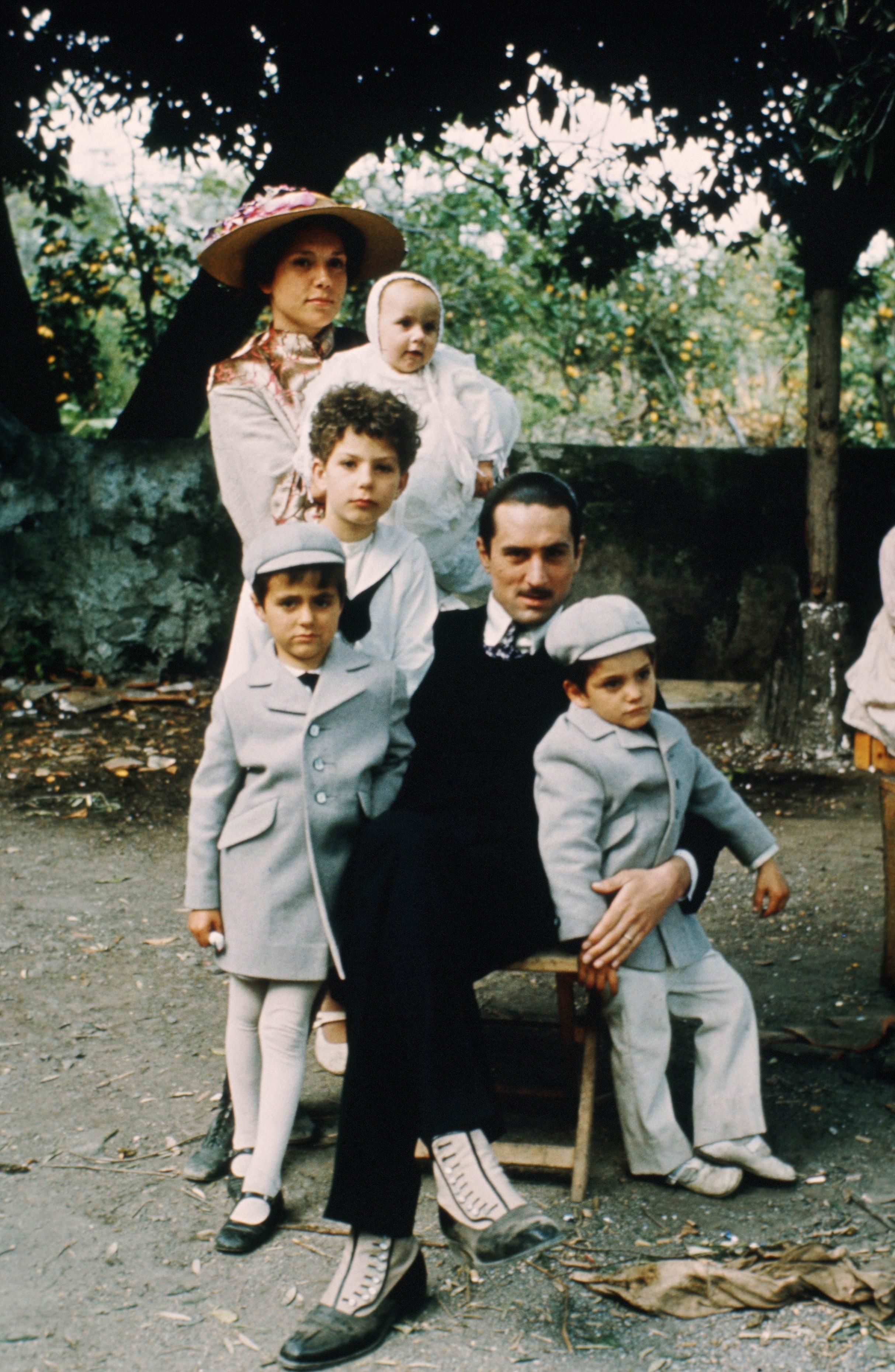Synopsis
The tapestry of intricately weaves together the early trials of Vito Corleone with the complex challenges faced by his son Michael, exploring themes of ambition, betrayal, and family loyalty. The film begins in 1901, with a young Vito Andolini escaping the vengeance of a powerful Sicilian mafia boss, Don Ciccio, who has obliterated his family. Arriving in America, the taciturn immigration officer renames him Vito Corleone. By 1917, Vito is married with a son named Sonny, living in the bustling Little Italy. But his journey is fraught with hardship when a local extortionist forces Vito out of his job. Necessity drives Vito and his friend Peter Clemenza to a life of petty crime, deepening his roots in the underworld. A pivotal encounter sees Vito offering Don Fanucci far less than the demanded tribute, cleverly hatching a plot that leaves Fanucci dead, elevating Vito's status in the colorful, sun-drenched neighborhoods. Soon, the burgeoning crime lord in Vito embarks on a journey back to Sicily, returning with vengeance to finally confront the aging Don Ciccio in a climactic confrontation.
Set in 1958, Michael Corleone, Vito's son, stands at the helm of his father's empire, hosting meetings of former allies and lurking rivals at his Lake Tahoe estate. When Jewish mobster Hyman Roth extends an offer to join forces in a Cuban casino venture, tensions simmer and allegiances crack. Michael, narrowly escaping an assassination attempt, becomes suspicious of betrayal from within his beloved family. With cool resolve, he navigates a murky world of political bribery, hidden agendas, and legacy quarrels, leaving trusted confidant Tom Hagen as he delves deeper into treacherous dealings. A magnanimous peace conference devolves into chaos, sowing seeds of paranoia and mistrust over the Bronx territories. Meanwhile, Senator Pat Geary's brazen demands for bribes are met with a strategic, albeit ruthless, response from the Corleones.
Michael's trip to Havana, a city teetering on the brink of revolution, with Roth becomes a pressure-cooker of questions and doubts, revealing fissures in the supposed solidarity between criminal titans. When personal conflicts spill into the political upheaval, revelations about loyalty and betrayal spearhead a series of desperate bids for power. As New Year's Eve cloaks both joy and treachery, Michael uncovers that treachery lies heartbreakingly close to home.
Against the backdrop of a Senate inquiry into organized crime, the loyalty of familial bonds is stretched thin. Testimonies shift like desert mirages when Michael's presence stirs fear and reconsideration, turning the tide in unpredictable ways. When Kay, Michael's beleaguered wife, alters the dynamics at home with revelations of her own, emotions clash with the cold call of duty, leading to poignant losses.
The film crescendos with exploration of loyalty and revenge as Michael, now isolated in his fortified world, orchestrates the resolution of unfinished business. As echoing memories of family unity at Vito's past birthday celebration surface, a reflective Michael faces the bittersweet legacy bestowed upon him. This cinematic odyssey delivers a poignant narrative of power's price and the enduring yet frayed threads that tie family and memory together.
Argument
masterfully weaves together the stories of two iconic figures, Vito and Michael Corleone, navigating through parallel timelines that shape the infamous Corleone legacy. This intricate cinematic tapestry simultaneously serves as both prequel and sequel, providing an unparalleled exploration of family, power, and the burdens of leadership within the world of organized crime.
The film opens by delving into the early life of young Vito Andolini, whose flight from Sicily is precipitated by the tragic murder of his family at the hands of the ruthless Don Ciccio in 1901. Registered mistakenly as Vito Corleone upon his arrival in New York City, the narrative sets the stage for his transformative journey from a vulnerable immigrant to a formidable mob boss. By 1917, having found solace in marriage and fatherhood with the birth of his son Sonny, Vito's life takes a formidable turn when he faces economic hardship due to the extortion demands of the Black Hand, a notorious crime syndicate led by Don Fanucci, revealing the deeply entrenched systemic corruption within the neighborhood.
Faced with the grim reality of economic coercion, Vito becomes entwined in the criminal world when he collaborates with his neighbor, Peter Clemenza, initially resorting to petty theft as a means of survival. This pivotal moment in Vito’s life marks the inception of a darker path, culminating in the expansion of his family with two more sons, Fredo and Michael, and laying the foundation for what will eventually become the mighty Corleone empire. As he engages in illicit activities, Vito's acumen for negotiation comes to light when he tactically undermines Fanucci's authority, ultimately orchestrating his assassination. His ability to challenge and outmaneuver power plays garners him the respect and trust of the neighborhood, transforming him into a revered protector and leader. His journey to Sicily in 1922, under the guise of expanding legitimate ventures such as importing olive oil, ultimately brings Vito full circle as he exacts vengeance upon an aged Don Ciccio, epitomizing the completion of his metamorphosis into a don who avenges wrongs and solidifies his familial and criminal stature.
In stark contrast, the film explores the ensuing complexities of Michael Corleone's reign in 1958, depicting a man ensnared by the very power and authority he sought to control. Michael, the current head of the Corleone family, faces relentless challenges at his Lake Tahoe compound, revealing the tenuous grip he holds over both his criminal enterprise and family affairs. At the heart of these challenges is the calculated deceit of allies and enemies alike, manifesting during his dealings with Hyman Roth of the Jewish Mob and the duplicitous Frank Pentangeli. Through Michael's strategic yet struggle-laden navigation of alliances and betrayals, the storyline exposes the intricate power dynamics and conflicts of interest that threaten to dismantle his empire.
Senator Pat Geary’s disparagement of Michael's Italian heritage exemplifies the prejudices and corruption endemic to the socio-political landscape, whereby a demand for bribes underscores the moral decay pervading all levels of authority. In the wake of an assassination attempt on his life, compounded by a web of deceit that envelops even his most trusted advisors, Michael is forced into hiding, entrusting the family's operations to the steadfast Tom Hagen. His ensuing counter-strategies include orchestrating a meeting between Pentangeli and the Rosato brothers, a move steeped in irony and subterfuge that ultimately results in further discord and failed alliances.
Michael’s venture to Havana, under Roth’s auspices, lays bare his astute awareness of geopolitical instability amidst the Cuban Revolution, yet it is his disillusionment with familial betrayal that reverberates most profoundly. Discovering the treachery of Fredo, a brotherly bond solemly severed, Michael orchestrates Roth's assassination, a move reflective of his ruthless commitment to protect his legacy at any cost. This decision contrasts sharply with the warmth he once shared with Fredo, depicted in flashbacks that highlight familial innocence now irrevocably lost.
Upon returning to America, Michael contends not only with political scrutiny from a Senate committee probing organized crime but also faces personal upheaval when his wife, Kay, reveals an aborted pregnancy, further fracturing their relationship. Kay's departure, her individualistic assertion to liberate herself from a life of violence, exacerbates Michael’s isolation and character arc, stripping him of personal connections and loyalty.
As the Corleone family saga draws near its grim conclusion, Michael’s resolute determination to eliminate potential adversaries culminates in executing his fractured brother, Fredo, through loyal enforcer Al Neri. Paralleling the fate of Pentangeli, whose coerced silence and eventual demise provide a poignant commentary on loyalty versus survival, these acts solidify Michael’s descent into absolute moral darkness. The powerful portrayal of these events underscores that the preservation of power often necessitates sacrifice and moral compromise, stripping away the humanity of those who wield it.
These interwoven narratives come to a melancholic denouement when Michael recalls a pivotal moment of familial unity and pride in the past, as Vito's 50th birthday celebration reveals the youthful idealism that once characterized his outlook. Haunted by the decisions that have led to loss and isolation, this recollection poignantly underscores the transformation from a man who sought to protect his kin to a don whose actions have led to ruthless alienation.
In conclusion, "The Godfather Part II" presents a deeply compelling argument about the cyclical nature of power, vengeance, and betrayal, as demonstrated through the lives of Vito and Michael Corleone. The film expertly interlaces these narratives to examine the grim reality that power's allure often leads to self-destruction, leaving audiences to ponder the cost of ambition and the destruction of legacy within the compelling realm of organized crime.
Cast

Al Pacino
Michael
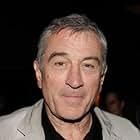
Robert De Niro
Vito Corleone

Robert Duvall
Tom Hagen

Diane Keaton
Kay
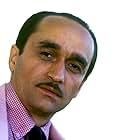
John Cazale
Fredo Corleone

Talia Shire
Connie Corleone
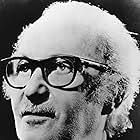
Lee Strasberg
Hyman Roth

Michael V. Gazzo
Frankie Pentangeli
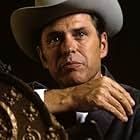
G.D. Spradlin
Senator Pat Geary
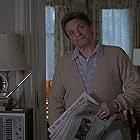
Richard Bright
Al Neri
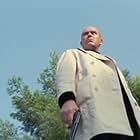
Gastone Moschin
Fanucci

Tom Rosqui
Rocco Lampone

Bruno Kirby
Young Clemenza

Frank Sivero
Genco

Francesca De Sapio
Young Mama Corleone

Morgana King
Mama Corleone

Marianna Hill
Deanna Corleone
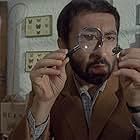
Leopoldo Trieste
Signor Roberto
Multimedia




